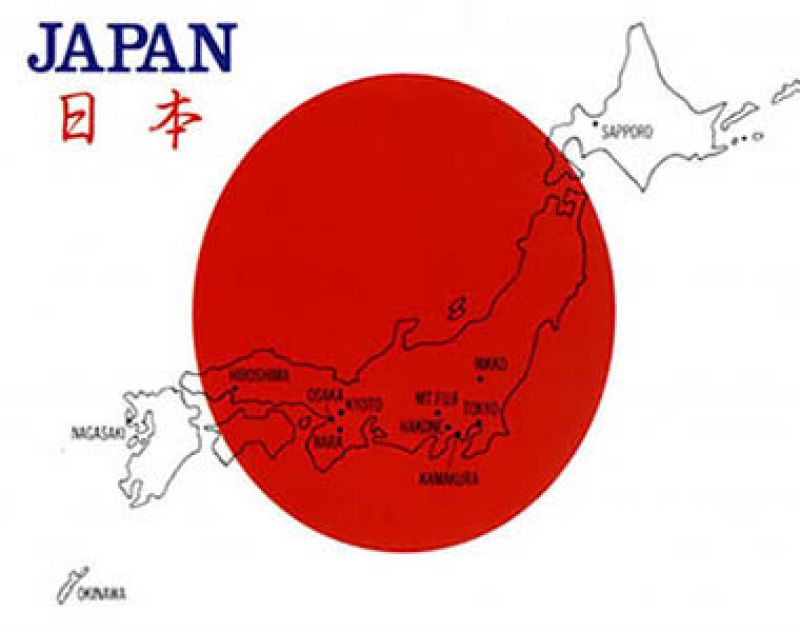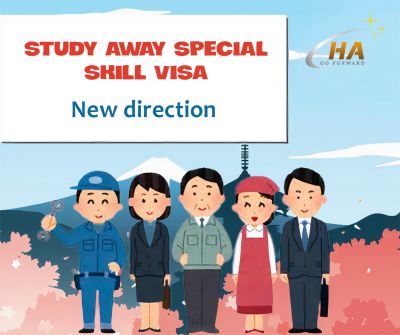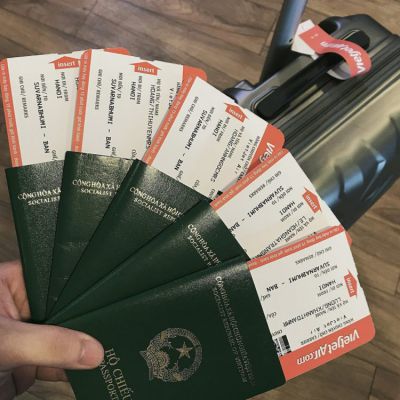♨♨♨♨♨
JAPAN OVERVIEW
1. GENERAL INTRODUCTION
|
No |
Country name |
Japan |
|
1 |
Geographical location |
Japan is an island country, located in East Asia, Asia on the Pacific Ocean. It is bordered by the eastern edge of the Sea of Japan, the East China Sea, the Korean peninsula, China, and the far east of Russia. |
|
2 |
Acreage |
377,972.28 km2, ranked 62 in the world. |
|
3 |
Population |
127.110,047, ranked 10th in the world. |
|
4 |
Geography |
This volcanic archipelago has nearly 7,000 islands with 4 large islands: Hokkaido, Kyushu, Shikoku and Honshu. The rest are small islands. Therefore, Japan is mainly mountainous, dense forest and coastal plains. |
|
5 |
Capital |
Tokyo. |
|
6 |
Political institutions |
The constitutional monarchy combines parliamentary democracy, in which the elected legislature is the National Assembly of Japan. |
|
7 |
Currency unit |
JPY (Japan Yen). |
|
8 |
Climate |
The climate is temperate with four distinct seasons. |
|
9 |
Emergency numbers |
Emergency service: police: 110 Sea Patrol Squadron: 118 Fire, emergency: 119 Request international help: #7119 |
|
10 |
Traffic side |
Left |
2.
Japan has 10 largest cities namely Tokyo, Hiroshima, Kyoto, Sapporo, Naha, Osaka, Nagoya, Fukuoka, Yokohama and Nikko. In addition, Japan has 47 To–Dou–Fu–Ken (Do–Dou–Pu–District), of which there are 1 capital (Tokyo), 1 ward (Hokkaido), 2 prefectures (Kyoto and Osaka) and 43 district.
Divided into 8 regions:
✦ Hokkaido region includes: Hokkaido Prefecture
✦ The Tohoku region includes: Akita Prefecture, Aomori Prefecture, Fukushima Prefecture, Iwate Prefecture, Miyagi Prefecture, and Yamagata Prefecture
✦ Chubu Region includes: Aichi Prefecture, Fukui Prefecture, Gifu Prefecture, Ishikawa Prefecture, Nagano Prefecture, Niigata Prefecture, Shizuoka Prefecture, Toyama Prefecture, Yamanashi Prefecture
✦ The Kanto region includes: Chiba Prefecture, Gunma Prefecture, Ibaraki Prefecture, Kanagawa Prefecture, Saitama Prefecture, Tochigi Prefecture, and Tokyo Prefecture.
✦ Kinki Region includes: Hyogo Prefecture, Kyoto Prefecture, Mie Prefecture, Nara Prefecture, Osaka Prefecture, Shiga Prefecture, Wakayama Prefecture
✦ The Chugoku region includes: Hiroshima Prefecture, Okayama Prefecture, Shimane Prefecture, Tottori Prefecture, Yamaguchi Prefecture
✦ Vùng Shinkoku bao gồm: tỉnh Ehime, tỉnh Kagawa, tỉnh Kochi, tỉnh Tokushima
✦ Khu vực Kyushu bao gồm: tỉnh Fukuoka, tỉnh Kagoshima, tỉnh Kumamoto, tỉnh Miyazaki, tỉnh Nagasaki, tỉnh Oita, tỉnh Saga, tỉnh Okinawa
3.
Japan is a country with the third most developed market economy in the world. Although poor in natural resources, this country is a leading country in the production and development of iron and steel, shipbuilding, weapons manufacturing, automobile manufacturing, etc.
In 1940, Japan's total economic output (GDP) reached 192 billion USD (converted in USD price in 1990) compared to the UK's 316 billion USD, France was 163 billion USD, Germany was 387 billion USD, the Union The bucket is $417 billion…
The currency of Japan is JPY (Japanese Yen), the exchange rate is 1 JPY = 206 VND, 1 Man = 10,000 Yen (equivalent to 2,000,000 VND), 1 Sen = 1,000 Yen (equivalent to 200,000 VND).
4.
In the summer, the temperature falls around 30-35oC, the relative humidity is high and the rainfall is quite abundant, so it often suffers from natural disasters such as storms and floods. There are also: tsunamis, earthquakes, volcanoes, snowfall.... In contrast, in winter the temperature drops on average from 10-12oC, can reach -30oC in Hokkaido and heavy snowfall. .
5.
The Japanese are very healthy and resilient, even women can stand to work all day, even 70-80 year olds are still enthusiastic about working because they love working.
The Japanese personality is very special, perhaps thanks to this character, the Japanese have turned their country poor in natural resources and harsh climate into an advanced power ranked 3rd in the world. Examples are as follows:
➳
➳
➳
➳
➳
➳
➳ The Japanese are very serious about keeping time and they are never late for meetings, even arriving 5-10 minutes earlier. If there is a need to be late, we will contact you in advance to let you know the exact time of arrival.
6. RELIGION
Religion in Japan is dominated by 2 main religions: Shintoism - Shinto and Buddhism with related organizations. According to social statistics surveys carried out in 2006 and 2008, less than 40% of the Japanese population identifies themselves with an organized religion, 35% as Buddhist, 3-4% as followers of Shinto and other religions. sectarian religion Shinto, 2.3% Christianity.
The Japanese also attach great importance to Confucianism, but in fact, for them Confucianism is more of a moral standard than a religion.
7.
❧ Elementary school: From grade 1 to grade 6
❧ Middle School: From 6th grade to 9th grade
❧ High School: From 10th grade to 12th grade
Most then go on to high school and according to MEXT, about 75.9% of high school graduates go on to study at university, college or other educational exchange programs.
The OECD Collaborative International Student Assessment Program currently ranks Japan sixth in the world.
8.
In daily life or in work, study, party... at the beginning as well as at the end, all Japanese greetings are usually accompanied by a bow. The Japanese always follow the rule:
☣ Whoever sees first greets first.
☣
☣
When walking on the street, Japanese people often greet each other cordially with some sentences such as: Konnichiwa, Doumo..., Ohisashiburi,...
9. APOLOGETIC CULTURE
In Japan, sorry and thanks go hand in hand. Apologizing sometimes it's not that we're wrong to apologize, but it's simply to show respect and humility to the other party.
Apologies are used quite often by the people of this country, can be heard everywhere, even as an expression of thanks. The Japanese think that this is an act of showing the minimum politeness, etiquette and politeness in the communication culture of "the land of Phu Tang".
10.
Japanese cuisine is famous around the world not only because of its sophistication and sophistication in the way it prepares and arranges dishes, but also because of its quality, safety and ethereal and gentle taste. bring.
11. TRANSPORTATION SYSTEM
↪ Buses are not very convenient due to their limited availability and the possibility of not being on time during peak hours.
↪ Taxi services in Japan are relatively expensive. The fare is calculated by km and varies by the hour; Evening prices are more expensive than daytime prices.
↪ Shinkansen trains are a means of long-distance travel equivalent to an airplane.
↪
The main means of transportation is the car. In Japan, motorbikes are rarely used, only the post office or some transportation units are used for mail delivery, delivery,... Large displacement motorcycles are quite common.
12.
Japan is a country with a special culture with many different rituals and customs, if you want to travel to Japan you need to note:
⚜ When dining in Japan, you absolutely must not stick chopsticks into the rice bowl.
⚜
⚜
⚜ You should not eat while walking.
⚜ You should not whistle at night, because bad guys often whistle while walking.
⚜ If giving gifts to Japanese people, you should avoid giving handkerchiefs. It shows that you want to cut ties with them, so you do.
⚜ You must not pass food with chopsticks, or pick up food for others.
⚜ In Japanese communication culture, you should bow your head and use both hands to give or take something from them, especially adults.
⚜ You should not give tips to the service staff, for the Japanese, the fact that guests give tips means that they themselves are not serving properly and the guests are not satisfied with their service.
⚜ You are not allowed to litter the street, if you do not want to be fined.
⚜ You should not talk on the phone on the train, as it is rude, especially if you speak too loudly.













